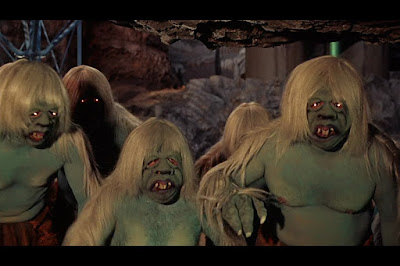 |
| Earthset |
A lunatic, for our purposes here, is neither a blood-sucking arachnid hitching a 27.32-day orbital ride on our celestial satellite nor a reference to our current White House occupant. While I thought about joining the chorus of rightfully outraged Americans who are condemning the racist-in-chief for his recent remarks, I decided to take a more positive tack. The lunatics to whom I refer are the people who, a half-century ago, lived through a crazy time in America where we all came together as one nation to celebrate the triumph of American perseverance and ingenuity. On July 20, 2019, we will celebrate the 50-year anniversary of the Apollo 11 spaceflight and lunar landing.
 |
| New York's Central Park on July 20, 1969 |
All of America crowded in front of our mostly black and white television sets to watch Neil Armstrong step out of the lunar module to place the first human footprint on our moon’s surface. I say first human footprint because we all know that Bugs Bunny put his paw prints on the moon back in the 1948 cartoon, Haredevil Hare.
 |
| Bugs Bunny on the moon in 1949, in the cartoon, Haredevil Hare |
The U.S. population at the time was around 202 million and 95% of households owned a television. The moon landing pulled a 93% share of the television market, which would equate to around 360 million eyeballs in the U.S. alone. At 4:17 p.m. EDT on that Sunday afternoon in 1969, the “Eagle” landed on the surface of the moon with 30 seconds of fuel to spare. An entire nation exhaled in unison. Yes, the Vietnam War protests were set aside, hippies were just fellow Americans again, and all of America was of one mind wishing three astronauts a safe mission.
 |
| Buzz Aldrin as photographed by Neil Armstrong |
We were a nation united in our celebration of this singular achievement. Television provided the common experience for all of America to watch live video from the moon that showed us, two men, planting the American flag on the lunar surface. It was the end of the ‘60s. It was also the end of a time in American music. It was a transition from the Age of Aquarius, the British invasion, and Woodstock in August of 1969, that preceded the move to the more “funkified” ‘70s. The astronauts of the Apollo 11 mission took with them on newly invented cassette tapes, a playlist, before there were such things, of their music selections.
 |
| Music that went to the moon |
The image below shows my Spotify playlist titled Jacks Apollo 11. The first eight songs were the actual songs and artists the astronauts selected and had on their Sony TC-50 tape recorder cassettes. I left off two songs from their selections because I, like Mission Control in Houston, thought Armstrong’s Mist of the Moon and Moon Moods were ear-graters. The first song is the most obvious and is Frank Sinatra's Fly Me to the Moon, with Quincy Jones leading the Count Basie Orchestra. To their eight selections, I added eight more from 1969’s hits where I thought the title and/or message would be appropriate for such a historic event.
One final track was added to finish the playlist titled, Armstrong. This last song was written by John Stewart (not the comedian who spells his name Jon Stewart) to commemorate the Apollo 11 triumph. John Stewart was a musician and songwriter who played in the early ‘60s with The Kingston Trio.
 |
| Jack's Apollo 11 playlist |
The last lines to the song Armstrong, as written by John Stewart, are:
To watch a man named Armstrong
Walk upon the moon
And I wonder if a long time ago
Somewhere in the universe
They watched a man named Adam
Walk upon the earth
I will include here next for reference some words to ponder from the apocalyptic song “In the Year 2525.” The following are the final stanzas from that song.
In the year 9595
I'm kinda wondering if man is gonna be alive
He's taken everything this old earth can give
And he ain't put back nothing, woah woah
Now it's been 10,000 years
Man has cried a billion tears
For what he never knew
Now man's reign is through
But through eternal night
The twinkling of starlight
So very far away
Maybe it's only yesterday
Conflict, triumph, and tragedy have all managed to unify America. It is truly tragic that it takes a World War, a man walking on the moon, a Columbia disaster, or the horror of 9-11 to bring unity to America.
Reference
The links below are items that may be of interest to the reader.
The first link is to the original 1949 Bugs Bunny cartoon, Haredevil Hare where Bugs Bunny lands on the moon and meets Marvin the Martian.
Next is a Haredevil Hare parody that I found amusing albeit with some foul language.
The final link is to NASA’s site where you will find a 2 minute video clip of the historic Neal Armstrong stepping on the moon along with a few pictures and a bit of narrative.
Cartoon Haredevil Hare
Haredevil Hare parody
NASA Moonwalk







